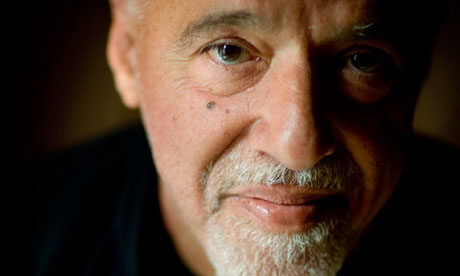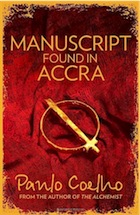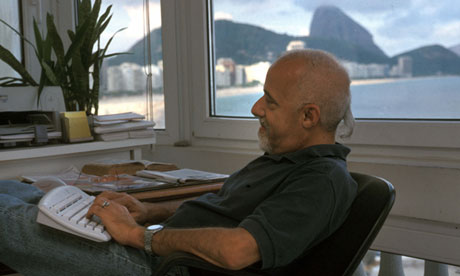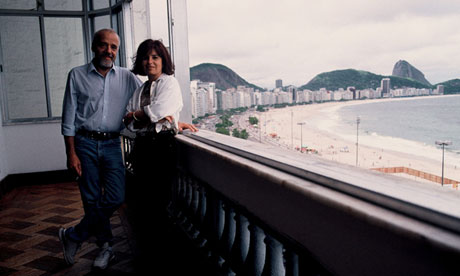It was supposed to be an event targeted at young people and I’m not that young any more; it was meant to be a campaign designed to build confidence and I don’t see myself as the timid type; and anyway, I was there to interview World and Olympic Champion Jessica Ennis-Hill, not for an education in self-help. Yet I left Sky Studios the other day profoundly influenced by a single sentence.
Find something you love and then stick to it.
These words emerged from the mouth of Melvyn Bragg, the enduring broadcaster who has reached the very top of his profession. They amounted to Lord Bragg’s recipe for confidence. He was speaking on a panel put together by Sky Academy, a bursary scheme that supports emerging talent in the worlds of sport and the arts. His advice immediately lodged somewhere deep inside me, partly perhaps because Bragg is a luminary in my own field, partly perhaps because I’ve enjoyed meeting and interviewing him in the past. Its real impact, though, stems from its essential truth. If you love something, you’re more likely to be confident at it and therefore to succeed.
Despite my self-assurance, bred in me by my privileged schooling, my parents and a childhood environment in which I was surrounded by successful role-models, I do sometimes doubt my career trajectory. The life of the self-employed can provoke uncomfortable journeys into dark corners of the mind where confidence seems a distant relative. But Bragg reminded me that I do love what I do and that there is a very strong argument for sticking at it. There are echoes of a line from Paulo Coelho’s The Alchemist in Bragg’s philosophy: “Remember that wherever your heart is, there you will find your treasure.”
Of course, Bragg’s winning cocktail must include a decent dose of natural ability if it’s to translate into success. Simply loving something isn’t enough, you have to have some talent or aptitude too. It's a maxim that England’s rugby players must now know only too well. They no doubt love what they do (much of the time) and they are talented; but not talented enough, it turns out.
There were plenty of confident noises emanating from in and around the England camp last week ahead of the do-or-die match against Australia. Ben Morgan, one of the 18-stone forwards, threatened to expose the Wallabies’ infamous insecurities in the scrum; Danny Cipriani, the talented back excluded from England’s tournament squad, claimed that not a single Australian would get into the England team. In the event, England crashed out of their own World Cup, the English pack was humiliated in retreat and it was hard to see how more than one or two Englishmen would make it into the Australian team.
 Stuart Lancaster's England appeared to suffer a crisis of confidence during their World Cup games Photo: REUTERS
Stuart Lancaster's England appeared to suffer a crisis of confidence during their World Cup games Photo: REUTERSSo much for English confidence. But then again, maybe they were faking it. I was in the stands to watch their disintegration, part physical, part mental, in the final excruciating minutes against Wales the week before. Could every England player really have been that sure of themselves after such a bruising defeat, facing an Australian team fresh from winning the southern hemisphere’s coveted Rugby Championship? Perhaps. Or maybe self-doubt had crept in but they decided to subscribe to the Davina McCall blueprint for confidence.
The former Big Brother host, was, together with Ennis-Hill, Mumsnet founder Justine Roberts and YouTube personality Alfie Deyes, on the same panel as Bragg. McCall is not an obvious candidate for self-doubt, but speaking with impressive candidness, she talked about her own teenage issues with a chronic lack of confidence. Her remedy was to act as if she really were confident. Fake it, she advised. If you’re not confident, teach yourself to project confidence instead and eventually you might end up believing it.
 Fake it to make it: Davina McCall admits to suffering from low confidence as a teenager Photo: Andrew Crowley
Fake it to make it: Davina McCall admits to suffering from low confidence as a teenager Photo: Andrew CrowleyMahatma Gandhi seemed to be saying something similar when he reflected, “Man often becomes what he believes himself to be. If I keep on saying to myself that I cannot do a certain thing, it is possible that I may end by really becoming incapable of doing it. On the contrary, if I have the belief that I can do it, I shall surely acquire the capacity to do it even if I may not have it at the beginning.”
Roger Uttley, a former England rugby coach, offered advice to the incumbent, Stuart Lancaster, via an interview with The Telegraph between the Wales and Australia games. “You have got to get over things quickly,” he said. “Stuart has to look the part in terms of his body language. It is tough to do that but important. Players feed off it.” Lancaster did put on a brave face, but he had already admitted to being “absolutely devastated” following the loss to Wales. Hardly the sort of message to be sending down from on high. The scoreline worsened against Australia and this time Lancaster was “absolutely gutted.”
Just how critical confidence is in sport had already been spelt out in an ITV interview given by Warren Gatland ahead of his side’s thrilling victory over the English. England have more money, more fans, more players – yet still Wales won. “When are you at your best?” Gatland was asked. “When I'm under a bit of pressure. It's always been my biggest challenge often with the Welsh players to keep building on that confidence and that self-belief that they are good enough to compete with the best teams in the world and they're good enough to go out there and win.”
Gatland was then asked what was the one quality he had as a player that has never left him. “Self-belief,” came the reply. Together with greater skill and fitness, what Wales demonstrated in those final frantic minutes was a core belief that they could still win a game that seemed lost at half-time. The players aped the confidence of their coach.
 In the eye of the storm: Wales coach Warren Gatland Photo: AFP
In the eye of the storm: Wales coach Warren Gatland Photo: AFPDuring the recent Ashes summer, Sky Sports ran a series of programmes profiling some of cricket’s greatest stars of the past. Listening to Glenn McGrath speak about his record-breaking career, it was immediately obvious how pivotal self-belief was to his success. Just like the Welsh rugby team, confidence was welded onto ability, in his case onto his metronomic accuracy with the ball.
“The biggest battle I ever had when I was bowling out in the middle was with myself,’ he said. “And if I won that battle the rest was pretty easy. It's about having a bit of mongrel in you. You've got to be aggressive.” His two main strengths, he said, were that accuracy and a little bit of bounce. Then he added: “And just self-belief.” Interviewed for the same profile, McGrath’s former new ball partner, Jason Gillespie, reflected: “I don't think anyone came close to believing in their own ability as much as Glenn McGrath.”
Confidence is essential in politics too. It’s something that David Cameron projects so effectively that it is rarely, if ever, questioned in profiles of the Prime Minister. Despite his pledge to end “Punch and Judy politics" when he became leader, he has often been forthright and confrontational at the despatch box and exudes an air of watertight self-confidence that borders on a sense of entitlement. To what extent this is contrived, we don’t know, but much of it may have its roots in an elite public school education at Eton.
Wherever Cameron’s confidence comes from, it now stands in stark contrast to the hesitancy of Jeremy Corbyn. Maybe the Labour leader’s indecisiveness in interviews can be spun as the supreme confidence of a man with a mandate from his party’s grass roots not to play by the long established rules of Westminster politics. Up goes the cry: 'It’s the new politics!' But, if he continues to dither, he will continue to be cast by others as un-Prime Ministerial and as an uncertain figurehead.
Margaret Thatcher came across as even more self-assured than Cameron (and she was a state-educated grocer’s daughter). No one could claim that confidence is a male preserve. But it is, perhaps, worth asking whether gender sometimes plays a role. If you haven’t heard of impostor syndrome, it’s a phenomenon thought to be particularly prevalent among high-achieving women. It is, essentially, a conviction that success, however merited, is actually undeserved.
There is also that feeling of guilt so common, we’re told, among new mothers. In my interview with Ennis-Hill, she explained how anxious she’d been ahead of this summer’s World Championships in Beijing. When training wasn’t going so well, she imagined how she’d feel if she didn’t perform as she hoped. “I would have been away from my son for two weeks and I would have been absolutely devastated because I would be so mad with myself for being away. As a mum as well you feel guilty about everything, so it’s definitely the hardest thing I’ve ever, ever done,” she told me. How many men would have questioned themselves in this way?
Ennis-Hill spoke openly about one of the more challenging consequences of childbirth. “Your confidence does [take a] knock,” she said. “I was thinking, 'Oh gosh, I’ve got to train now as well and fit all this in. You’re up through the night and that has an impact on how you feel about everything and whether you can do it, and your self-belief. Everything’s a million times worse when you’re tired.” In a changing world, men also travel emotional postnatal journeys and undoubtedly suffer from sleep deprivation too. But they certainly aren’t forced to battle through changes to body shape.
And then there’s the question of why there are so many more prominent male comedians. Earlier this year, I asked Jason Manford for his explanation in an interview for the Radio Times. “Audiences on a Friday, Saturday night are a bit rowdy and I always think stand-up is a bit like flirting,” he said. “So when a bloke comes out and he does his thing, he’s making people laugh, this is what you do when you’re flirting one on one.
“So it’s harder for females sometimes to come on and be on the forefront because that’s not what we’re used to in our societal rules. It’s a bloke who’s on the forefront and generally the woman’s passive. For a female to be aggressive is not what we’re used to. So I think female comics generally have to work harder because of an audience’s preconceptions.”
Handling rejection, Manford believed, is another factor. “Blokes are more used to rejection. Generally it’s a bloke who asks a girl out. I’m stereotyping but that’s what we do. And I’ve noticed it on the circuit. A girl will come off stage, she’s had a bad gig, and she’ll go, ‘I must have said something wrong.’
“A guy will come offstage and he’ll go, ‘Maybe the sound was off’ or, ‘It was definitely the audience’. He’ll find an external reason for his failure."
Whether or not there’s something in Manford’s analysis, we still live in a society where – last time I checked anyway – the onus is more frequently on the man to chat up a woman. That involves confidence. Peacocking isn’t a ritual confined to the animal kingdom.
There’s no doubt that confidence is an attractive quality in both men and women. It can transform appearances and draw in admirers who would otherwise walk on by. It can also be, as we’ve seen, a pivotal ingredient in successful careers. But overconfidence not only becomes unappealing, it can mutate into arrogance, pride and, ultimately, a fall.
The ancient Greeks knew about nemesis following hubris thousands of years ago and I’ve always thought Piers Morgan’s Twitter profile is brilliantly clever. He is one of the most confident men on social media, but he’s carved an indemnity clause into his online presence with a simple, biographical bon mot: “One day you’re the cock of the walk, the next a feather duster.”




